The European Union is seeking a new direction in defense after President Donald Trump opted to distance the United States from European security.
Having lost its most important ally, Brussels has focused on ensuring the security of the continent on its own, both due to pressure from Washington and the ongoing threats from Moscow.
The European Commission announced a new strategy, known as the White Paper, on March 19, which includes increasing military expenditures and production, as well as allocating resources to joint defense projects until 2030.
The EU, which seeks to share its topics of discussion and planned steps with NATO’s leading countries in defense, has created a platform for the exchange of ideas under the name of “like-minded countries” for the security of the continent.
Türkiye, both a candidate country for the EU and a NATO ally, has also joined the platform, boasting defense industry breakthroughs in recent years.
The European Commission has proposed a financing package of 150 billion euros ($170.59 billion), called the European Security Action (SAFE), to facilitate the 2023 goals outlined in the White Paper.
Türkiye’s participation is now up for debate in Brussels thanks to Article 17 of the SAFE package, which states that not only member countries but also candidate countries can be part of the program.
SAFE allows EU member states, Switzerland, Norway, Liechtenstein and Iceland, which are members of the European Free Trade Association (EFTA), and Ukraine to purchase joint defense products, and participate in joint procurements with EU member states, but they cannot receive credit, according to European Commission defense spokesperson Thomas Regnier.
The program can also include countries with which the EU has signed a partnership agreement in the field of security and defense, Regnier said in a written statement to Anadolu Agency (AA).
The EU has signed a security and defense partnership with Norway, Moldova, South Korea, Japan, Albania and North Macedonia.
“Companies located in Europe can participate in the procurement process,” Regnier said. “If they meet the security-based conditions, they do not have to be European.”
Other countries (non-EU members) such as Türkiye can immediately provide up to 35% of a defense product. In order to increase industrial participation above 35%, a Security and Defense Partnership and then a partnership agreement are required, Regnier explained.
‘Firewall’ for Turkish companies
The proposals within the scope of SAFE are still only proposals, and the entire text will be negotiated by the member countries, according to Ester Sabatino, a Berlin-based military analyst at the international think tank International Institute for Strategic Studies (IISS).
Sabatino believes Türkiye has done a “great job” in recent years, notably with major investments in the development of its defense industry.
“At this point, it has a special expertise, especially in the production of armed drones,” he told AA. “This is also something that European countries want to focus on significantly. Now, there is a need for this type of production on the European side. There are not many drone manufacturers in Europe.”
Arguing that Türkiye could be a valuable partner, Sabatino said, “But unfortunately, everything is becoming extremely politicized. Nevertheless, there is an awareness at the EU level that it is no longer possible to trust the U.S. side.”
“In fact,” Sabatino said, “What I see for Türkiye is that if Turkish companies create a kind of ‘firewall’ on EU territory, they can basically get involved in projects more easily.”
“This means that the management of the companies should be separated. A subsidiary established in Europe, separated from the original management of the company, should be counted as a European company. If there are Turkish companies located on EU territory and have this kind of separation in management, it will be easier for them to participate in the 35%,” Sabatino said.
European defense will be a top topic of discussion among NATO leaders when they convene for the annual summit in June.
“If it becomes clear there that the U.S. support for European security will decrease, there will be a stronger need for European countries to increase their defense investments and production,” Sabatino said. “Thus, there will probably be more room for companies from Türkiye or for Türkiye’s participation in industrial cooperation.”
Greece is disturbed
On the other hand, Brussels is buzzing with rumors that Greece is “not happy” with the possibility of Türkiye joining SAFE.
Greece is expected to request changes during the SAFE negotiations to tighten the framework for the participation of its neighbor and historic rival.
The SAFE regulation requires a qualified majority among member states to be approved.
Any formal defense agreement between the EU and a third country must be approved unanimously by the EU’s member states.
Regnier refrained from commenting on the claim that Greece lobbied on the matter.

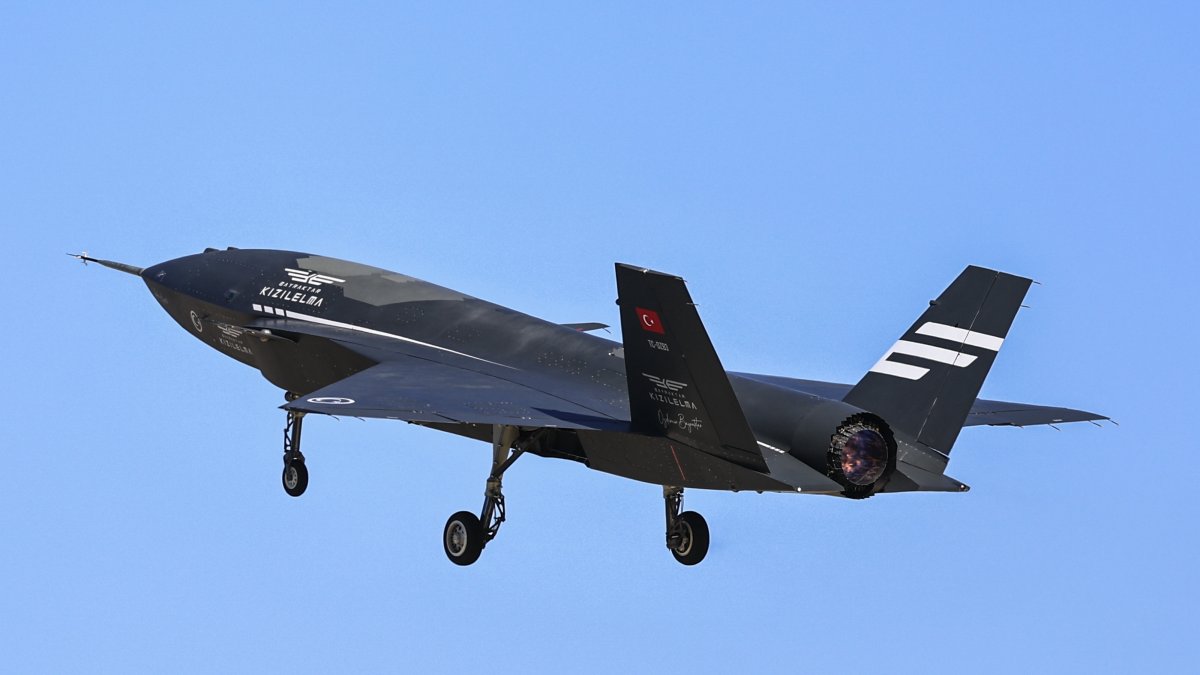
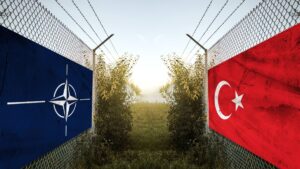


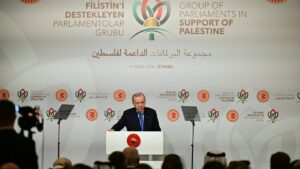

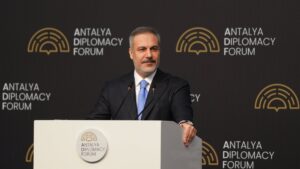

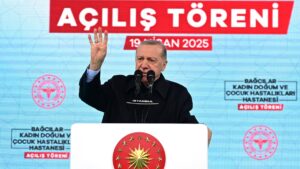






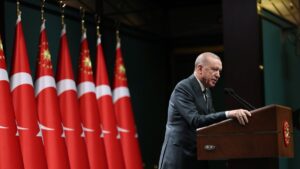
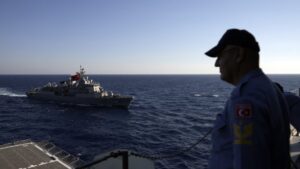


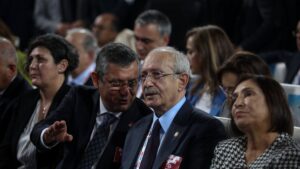




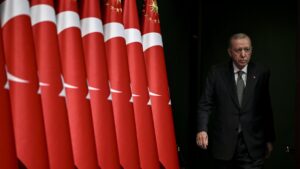
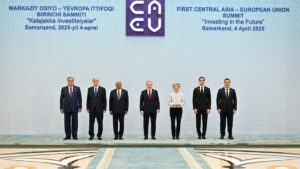

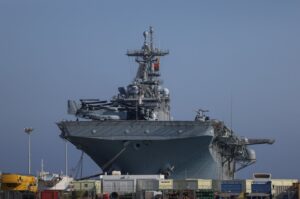

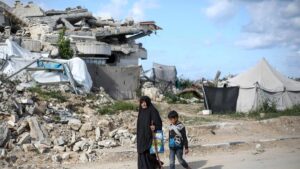
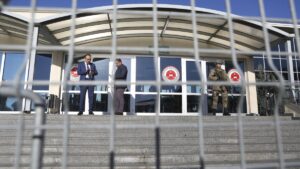
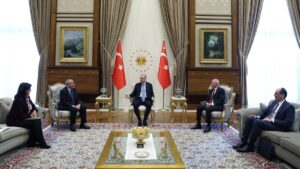
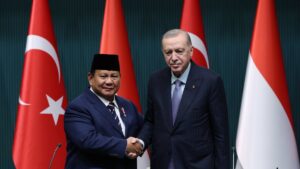
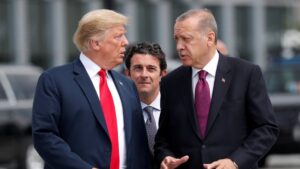
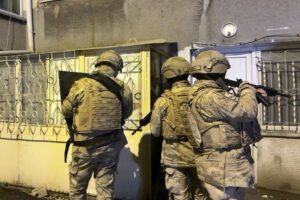


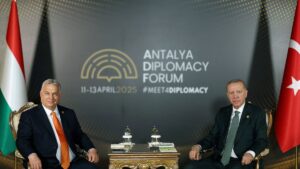
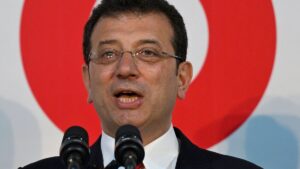

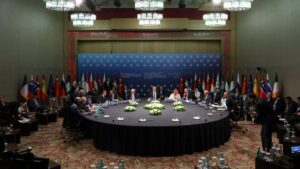


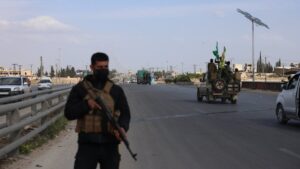



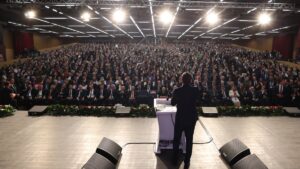
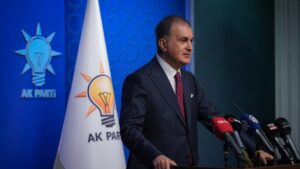
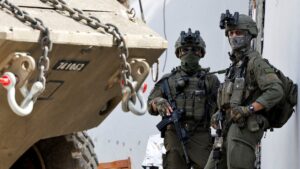
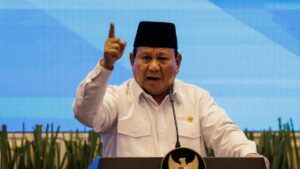
Be First to Comment